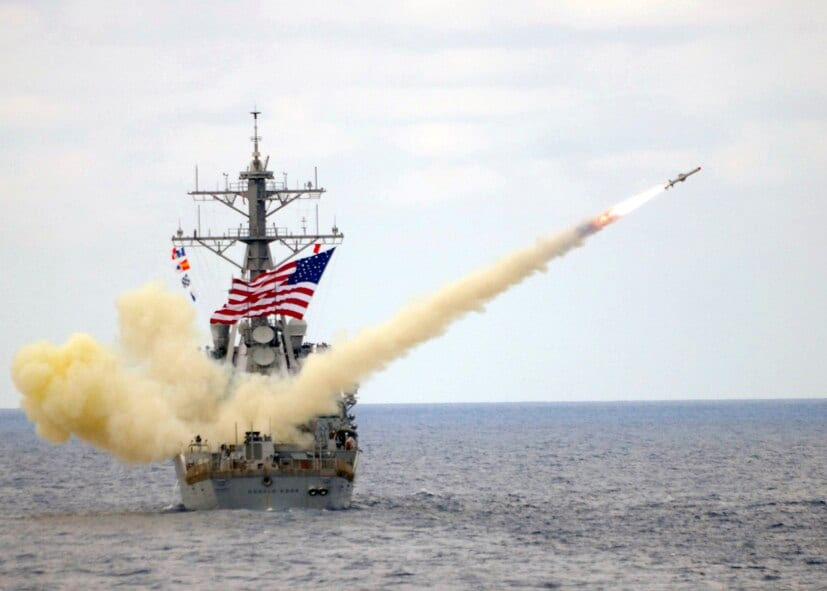Great Lakes Icebreaker Funding Cut from Senate Bill
Michigan Representative Bill Huizenga is leading efforts to restore funding for a new Great Lakes icebreaker that was included in the House-passed version of the One Big Beautiful Bill but...

A Harpoon anti-ship missile is launched by the guided-missile destroyer USS Donald Cook (DDG 75) during a ship sinking exercise off the coast of Florida. Photo by Patrick Grieco, US Navy.
by Mike Stone (Reuters) – The U.S. State Department has approved the potential sale of 100 Boeing-made Harpoon (anti-ship) Coastal Defense Systems to Taiwan in a deal that has a potential value of up to $2.37 billion, the Pentagon said on Monday.
The move comes days after the State Department approved the potential sale of three other weapons systems to Taiwan, including sensors, missiles and artillery that could have a total value of $1.8 billion, prompting a sanctions threat from China.
RELATED BOOK: Crouching Tiger: What China’s Militarism Means for the World by Peter Navarro
China will impose sanctions on Lockheed Martin, Boeing Defense, Raytheon, and other U.S. companies it says are involved in Washington’s arms sales to Taiwan, a Chinese foreign ministry spokesman said Monday.
“We deplore Beijing’s efforts to retaliate against U.S. and foreign companies for their sales that support Taiwan’s legitimate self-defense requirements,” U.S. State Department spokeswoman Morgan Ortagus said in a statement.
Monday’s formal notifications to Congress by the State Department covered the proposed sale of up to 100 Harpoon Coastal Defense Systems (HCDS), which includes 400 RGM-84L-4 Harpoon Block II Surface Launched Missiles to serve as coastal defense cruise missiles.
Taiwan said the arms sales showed the island’s defense was of “great importance” to the U.S. government.
“Facing China’s military expansion and provocation, Taiwan will continue to enhance the modernization of defense capacity and speed up asymmetric warfare capabilities,” it said in a statement.
The State Department sent notifications to Capitol Hill last week for the first tranche of arms sales including truck-based rocket launchers made by Lockheed, Standoff Land Attack Missile Expanded Response (SLAM-ER) missiles and related equipment made by Boeing Co, and external sensor pods for F-16 jets.
Reuters was first to report in September that sales of major weapons systems to Taiwan were making their way through the U.S. export process.
The formal notification gives Congress 30 days to object to any sales, but this is unlikely given broad bipartisan support for the defense of Taiwan.
The U.S. moves come as the Trump administration ramps up pressure on China in the run-up to the Nov. 3 presidential election and concerns rise about Beijing’s intentions toward Taiwan. Beijing sees Taiwan as a breakaway province that it has vowed to “reunite” with the mainland, by force if necessary.
RELATED BOOK: Crouching Tiger: What China’s Militarism Means for the World by Peter Navarro
(Reporting by Mike Stone in Washington, D.C.; Additional reporting by David Brunnstrom in Washington and Yimou Lee in Taipei; Editing by Matthew Lewis and Stephen Coates)

Sign up for gCaptain’s newsletter and never miss an update

Subscribe to gCaptain Daily and stay informed with the latest global maritime and offshore news


Stay informed with the latest maritime and offshore news, delivered daily straight to your inbox
Essential news coupled with the finest maritime content sourced from across the globe.
Sign Up